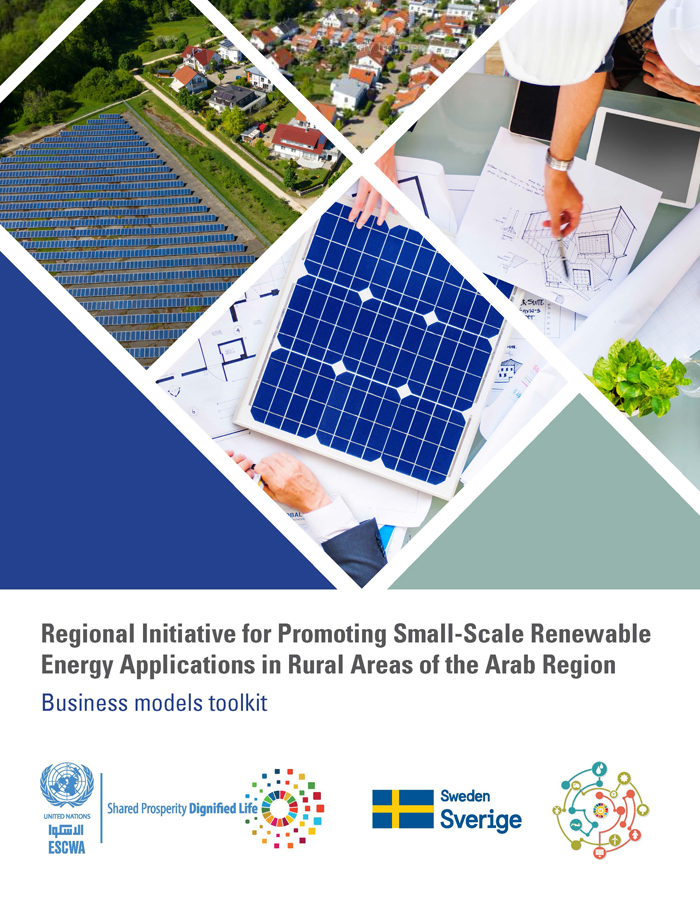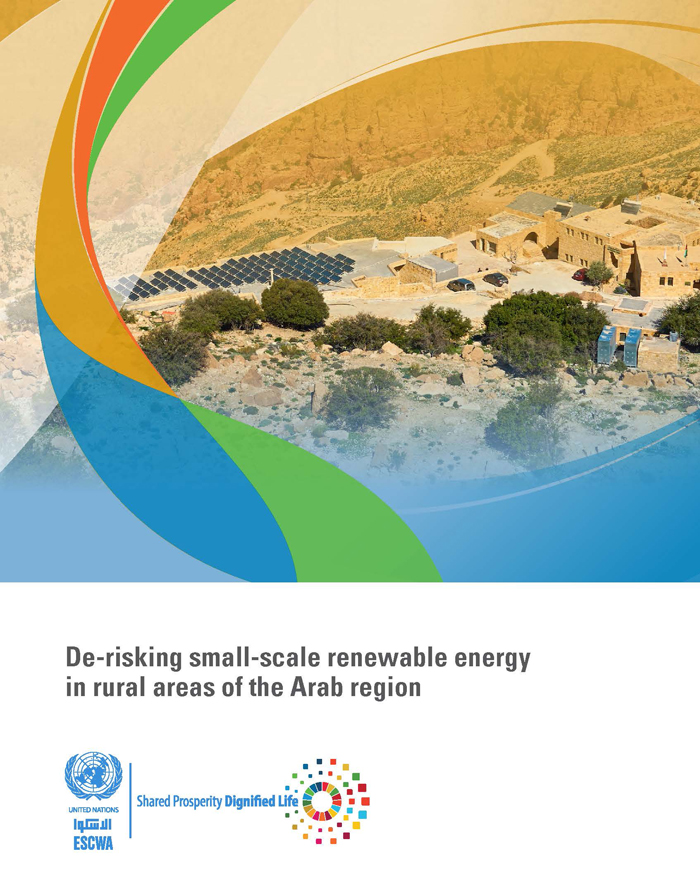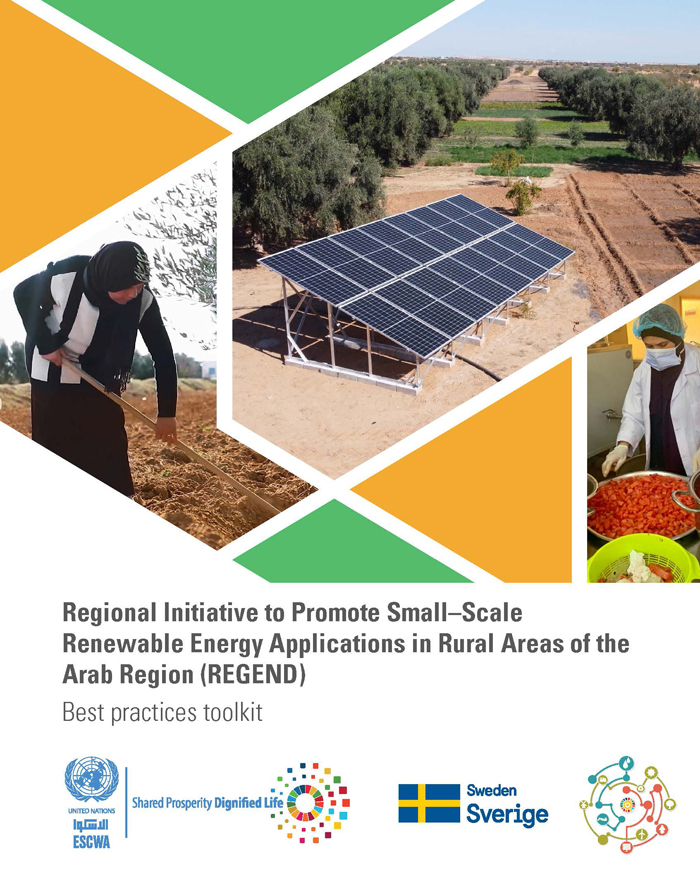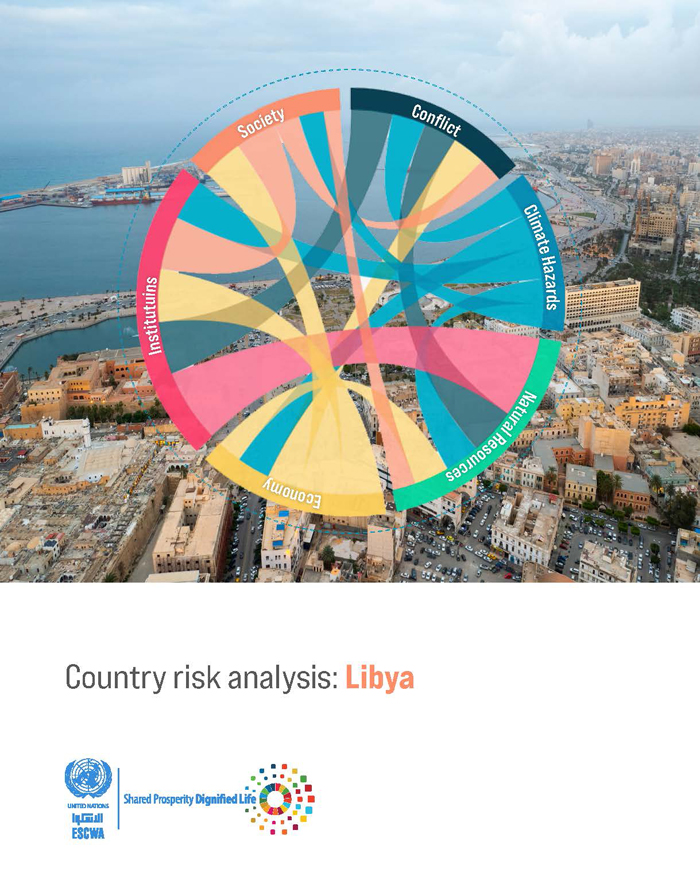
ESCWA Publication: E/ESCWA/CL1.CCS/2021/TOOLKIT.2
Country: Arab region
Publication Type: Training material
Cluster: Climate Change and Natural Resource Sustainability
Focus Area: Climate change, Natural resource sustainability
Initiatives: REGEND
SDGs: Agenda 2030
Keywords: Renewable energy sources, Rural development, Gender, Gender and renewable energy, Development policy, Rules and regulations, Youth, Climate change
Regional initiative for promoting small-scale renewable energy applications in rural areas of the Arab region: Business models toolkit
July 2022
The REGEND project aims to improve livelihoods and economic benefits in rural communities, particularly among marginalized groups, and to promote social inclusion and gender equality. It seeks to satisfy energy needs and showcase the effectiveness of the bottom-up approach in achieving results by addressing energy poverty, water scarcity and vulnerability to climate change and other natural resources challenges. Pro-poor investments are promoted using appropriate small-scale renewable energy technologies to facilitate productive activities and stimulate entrepreneurial development.
The objective of the present toolkit is to provide a guideline for the deployment of small-scale renewable energy technologies in rural communities in the Arab region. The toolkit provides general information, an integrated approach, available options, and considerations for creating a viable business model based on a desk-review of similar initiatives. The toolkit also provides steps to implement a suitable business model, demonstrates the possible financing options for rural end-users, and recommends policies and regulations to serve as an enabling environment for small-scale renewable energy applications in rural areas of the Arab region.
Related content
Climate change
, Natural resource sustainability
,
The REGEND project aims to improve livelihoods and economic benefits in rural communities, particularly among marginalized groups, and to promote social inclusion and gender equality. It seeks to satisfy energy needs and showcase the effectiveness of the bottom-up approach in achieving results by addressing energy poverty, water scarcity and vulnerability to climate change and other natural resources challenges. Pro-poor investments are promoted using appropriate small-scale renewable energy technologies to facilitate productive activities and stimulate entrepreneurial development.
The objective of the present toolkit is to provide a guideline for the deployment of small-scale renewable energy technologies in rural communities in the Arab region. The toolkit provides general information, an integrated approach, available options, and considerations for creating a viable business model based on a desk-review of similar initiatives. The toolkit also provides steps to implement a suitable business model, demonstrates the possible financing options for rural end-users, and recommends policies and regulations to serve as an enabling environment for small-scale renewable energy applications in rural areas of the Arab region.



